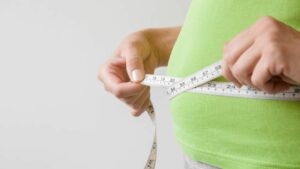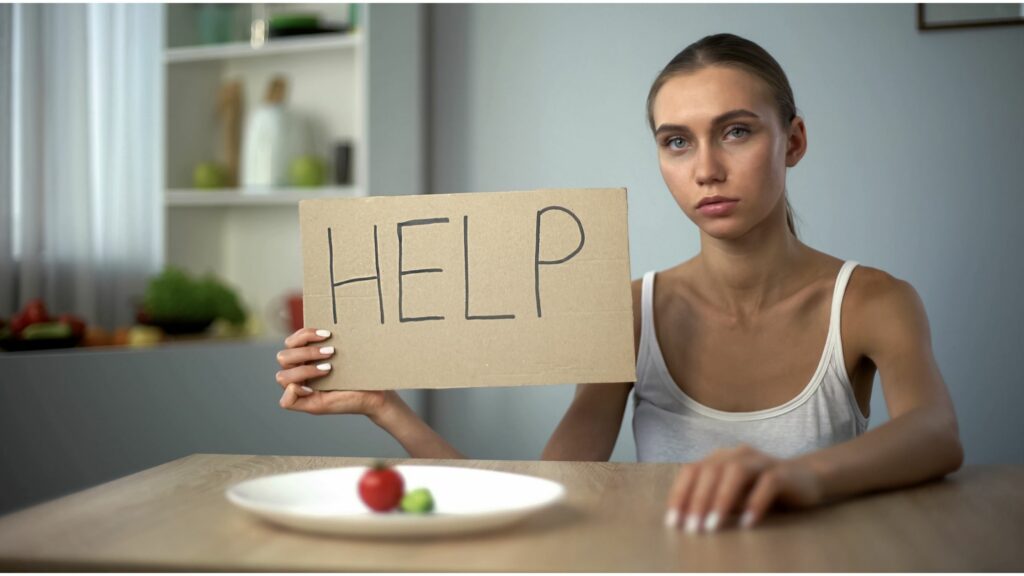Do you ever feel like you can’t stop eating, or like you’re not really hungry? Do you feel guilty after eating, or like you need to diet even though you’re not overweight? If so, you may be struggling with an eating disorder. Eating disorders are serious mental health conditions that can cause physical and emotional damage if left untreated. In this blog post, we will discuss the signs of OCD and eating disorders, as well as how to get help.
Contents
- 1 What Does Eating Disorder Mean?
- 2 What Does Obsessive-Compulsive Disorder Have to Do With Eating Disorders?
- 3 What Are The Similarities Between OCD And Eating Disorder?
- 4 What Are The Differences Between OCD And Eating Disorder?
- 5 What Is Link Between OCD And Eating Disorder?
- 6 What Are The Ways To Cope With OCD And Eating Disorder?
- 7 Conclusion
What Does Eating Disorder Mean?

Eating disorders are a type of mental illness that can cause serious, long-term consequences if left untreated. There are four main types of eating disorders: anorexia nervosa, bulimia nervosa, binge-eating disorder, and purging disorder. People with eating disorders often have distorted views of their bodies and may be preoccupied with food, weight, and dieting. Eating disorders can lead to severe health problems, including heart disease, kidney failure, and death.
What Does Obsessive-Compulsive Disorder Have to Do With Eating Disorders?
There are many ways that OCD can manifest itself, and one of the most common is through food and eating habits. People with OCD often become obsessed with calorie counting, food groups, and other aspects of their diet in an attempt to control their weight. This can lead to unhealthy and even dangerous behaviors, such as severe restriction, binging, purging, and overexercising.
What Are The Similarities Between OCD And Eating Disorder?

There are many similarities between OCD and eating disorders, including the fact that both can be extremely harmful to one’s health.
Becoming Fixated On Certain Thoughts And Behavior
Both OCD and eating disorders typically involve becoming fixated on certain thoughts and behaviors. For someone with OCD, this may mean obsessively thinking about germs or contamination. For someone with an eating disorder, this may mean becoming preoccupied with food, body weight, and calorie counting.
Engaging In Compulsive Behaviors
People with OCD often engage in compulsive behaviors in an attempt to relieve their anxiety. This might include excessive hand-washing or cleaning, checking door locks multiple times, or counting objects. Someone with an eating disorder may also engage in compulsive behavior, such as bingeing and purging, excessive exercise, or self-induced vomiting.
Experiencing Distress And Impairment
OCD and eating disorders can both cause a great deal of distress and impair one’s ability to function in day-to-day life. For example, someone with OCD may be so focused on their fear of germs that they are unable to leave the house or go to work. Someone with an eating disorder may become so fixated on food and body weight that they are unable to concentrate on anything else.
If you or someone you know is struggling with OCD or an eating disorder, it’s important to seek professional help. These conditions can be very difficult to overcome without treatment. If you think you might have OCD or an eating disorder, talk to your doctor or contact a mental health professional for an evaluation. Early diagnosis and treatment can make a big difference in recovery.
What Are The Differences Between OCD And Eating Disorder?

Although there are many similarities between OCD and eating disorders, there are also some important differences.
Change In Eating Habits
Eating disorders typically involve distorted body image and an intense fear of gaining weight, while OCD does not. People with eating disorders often restrict their food intake or binge and purge, while people with OCD do not typically change their eating habits.
Body Image And Weight
People with eating disorders are usually obsessed with their weight and body image, while people with OCD are usually not. People with eating disorders often see themselves as overweight, even when they are not, while people with OCD do not typically have distorted body image.
Difference In Treatment
Eating disorders require specialized treatment from a team of experts, while OCD can be treated by a psychiatrist or psychologist.
Differential Diagnosis
It is important to get a proper diagnosis from a mental health professional to rule out other conditions that may be causing similar symptoms. Conditions that need to be ruled out include anorexia nervosa, bulimia nervosa, avoidant/restrictive food intake disorder, and body dysmorphic disorder.
If you think you or someone you know may have OCD or an eating disorder, it is important to seek professional help. These disorders can be very debilitating and even life-threatening if left untreated. Treatment from a mental health professional can help people with OCD and eating disorders manage their symptoms and live happy, healthy lives.
What Is Link Between OCD And Eating Disorder?

There are a few possible explanations for the link between OCD and eating disorders.
Obsessive Personality Trait
People with OCD may be more likely to develop an eating disorder because of their obsessive personality traits. This means that they are constantly worrying about things and have a hard time letting go of thoughts or ideas.
People with OCD may obsess over their weight, body shape, and food intake. This can lead to unhealthy behaviors such as restrictive eating, binge eating, or purging.
Anxiety
Anxiety is another common symptom of OCD. People with OCD may worry about gaining weight or becoming obese. This can lead to anxiety around food and mealtimes. This anxiety can trigger disordered eating behaviors such as restrictive dieting or bingeing and purging.
Perfectionism
Perfectionism is another common feature of OCD. People with OCD may strive for perfection in their appearance and weight. This can lead to unhealthy behaviors such as crash dieting, overexercising, or purging.
If you or someone you know is struggling with OCD or an eating disorder, there is help available. Talk to your doctor or a mental health professional about treatment options. There are also many support groups and online resources that can help. Remember, you are not alone in this journey. Recovery is possible.
What Are The Ways To Cope With OCD And Eating Disorder?

There are many ways that people with OCD and eating disorders can cope with their condition. Some people may need medication to help them control their compulsions and thoughts, while others may benefit from therapy or other forms of treatment. Here are some tips for coping with OCD and eating disorders:
Educate Yourself About Your Condition
The first step to coping with OCD and eating disorders is to educate yourself about your condition. Learn as much as you can about your disorder and how it affects you. This will help you understand your symptoms and triggers, and make it easier to manage your condition.
Talk To Someone Who Understands
If you have OCD or an eating disorder, it’s important to find someone who understands what you’re going through. Talk to a friend, family member, therapist, or any other support system. This can be a great way to get relief from anxiety and stress.
Create A Support System
Another important tip for coping with OCD and eating disorders is to create a support system. Find friends or family members who can offer emotional support and help you stay on track with your treatment.
Avoid Triggers
One of the best ways to cope with OCD and eating disorders is to avoid triggers. If you know that certain situations or environments trigger your symptoms, do your best to avoid them. This may mean avoiding places where you see food or staying away from people who make you feel anxious.
Seek Professional Help
If you’re struggling to cope with OCD and eating disorders on your own, seek professional help. Therapists can provide you with tools and resources to manage your condition, and they can also offer support and guidance. Medication may also be an option, so talk to your doctor about what options are available to you.
If you want help with eating disorders, then book a consultation with our experts today through our website of Mantra Care. During the consultation, you will be able to ask any questions that you may have about OCD and get helpful tips on how to deal with it.
Conclusion
In conclusion, it is important to be aware of the signs of OCD and eating disorders, as they can often co-occur. If you or someone you know is struggling with either condition, please reach out for help. There are many resources available to those who need them, and recovery is possible.
If you are looking for affordable Online OCD Counseling MantraCare can help: Book a trial OCD therapy session


